Filter by
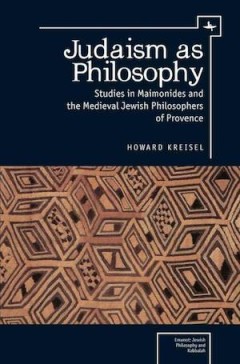
Judaism as Philosophy Studies in Maimonides and the Medieval Jewish Philosop…
The studies comprising this volume, most of them appearing for the first time in English, deal with some of the main topics in Maimonides' philosophy and that of his followers in Provence. At the heart of these topics lies the issue of whether they adopted a completely naturalistic picture of the workings of the world order, or left room for the volitional activity of God in history. These topi…
- Edition
- -
- ISBN/ISSN
- 9781618111791
- Collation
- -
- Series Title
- -
- Call Number
- -
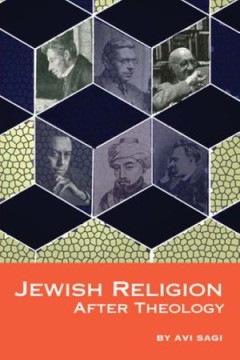
Jewish Religion After Theology
Jewish Religion After Theology ponders one of the most intriguing shifts in modern Jewish thought: from a metaphysical and theological standpoint toward a new manner of philosophizing based primarily on practice. Different chapters study this great shift and its various manifestations. The central figure of this new examination is Isaiah Leibowitz, whose thoughts encapsulate more than any other…
- Edition
- -
- ISBN/ISSN
- 9781934843208
- Collation
- -
- Series Title
- -
- Call Number
- -
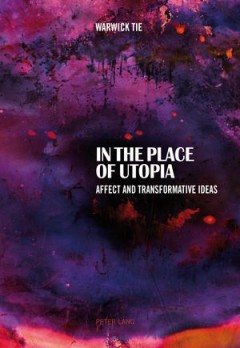
In the Place of Utopia Affect and Transformative Ideas
Considerable socio-political change has re-configured the discursive space once occupied by ‘utopia’. Within the cultures of late capitalism and the organisational matrices of bio-political administration, that space is no longer animated by images of idealised states that are yet to come, or by a sense of simple failure in the production of those same states. Rather, it is overdetermined b…
- Edition
- -
- ISBN/ISSN
- 9783035107142
- Collation
- -
- Series Title
- -
- Call Number
- -

Latin American Immigration Ethics
Following an extended period of near silence on the subject, many social and political philosophers are now treating immigration as a central theme of the discipline. For the first time, this edited volume brings together original works by prominent philosophers writing about immigration ethics from within a Latin American context. Without eschewing relevant conceptual resources derived from Eu…
- Edition
- -
- ISBN/ISSN
- 9780816542727
- Collation
- -
- Series Title
- -
- Call Number
- 210.1
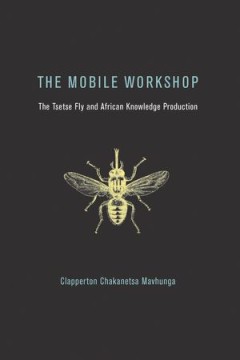
The Mobile Workshop:The Tsetse Fly and African Knowledge Production
How the presence of the tsetse fly turned the African forest into an open laboratory where African knowledge formed the basis of colonial tsetse control policies. The tsetse fly is a pan-African insect that bites an infective forest animal and ingests blood filled with invisible parasites, which it carries and transmits into cattle and people as it bites them, leading to n'gana (animal trypanos…
- Edition
- -
- ISBN/ISSN
- 9780262535021
- Collation
- -
- Series Title
- -
- Call Number
- -
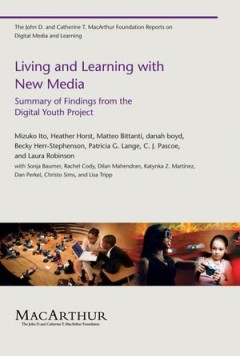
Living and Learning with New Media: Summary of Findings from the Digital Yout…
This report summarizes the results of an ambitious three-year ethnographic study, funded by the John D. and Catherine T. MacArthur Foundation, into how young people are living and learning with new media in varied settings—at home, in after school programs, and in online spaces. It offers a condensed version of a longer treatment provided in the book Hanging Out, Messing Around, and Geeking O…
- Edition
- -
- ISBN/ISSN
- 9780262513654
- Collation
- -
- Series Title
- -
- Call Number
- -
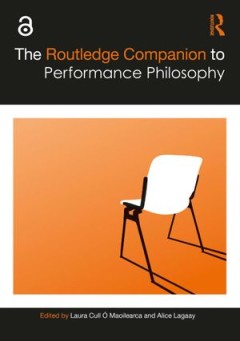
The Routledge Companion to Performance Philosophy
The Routledge Companion to Performance Philosophy is a volume of especially commissioned critical essays, conversations, collaborative, creative and performative writing mapping the key contexts, debates, methods, discourses and practices in this developing field. Firstly, the collection offers new insights on the fundamental question of how thinking happens: where, when, how and by whom philos…
- Edition
- -
- ISBN/ISSN
- 9781000056891
- Collation
- -
- Series Title
- -
- Call Number
- 790.2 ROU r
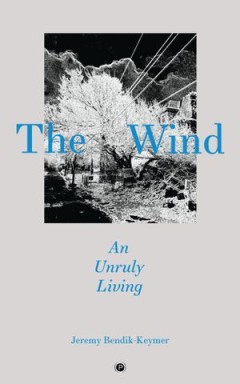
The Wind : An Unruly Living
A process begun in Pisa, Italy in April of 2016 during a workshop on political theory in the Anthropocene, The Wind ~ An Unruly Living is a philosophical exercise (askêsis, translated, following Ignatius of Loyola, as “spiritual exercise”). In his exercise, Bendik-Keymer throws to the void: the ideology of self-ownership from a society of possession. By using the Stoic kanôn, the rule of …
- Edition
- -
- ISBN/ISSN
- 978-1-947447-96-7
- Collation
- -
- Series Title
- -
- Call Number
- 100 BEN w
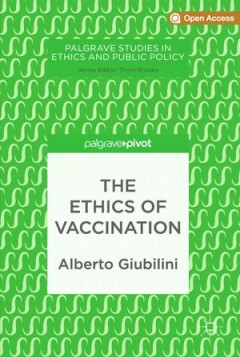
The Ethics of Vaccination
This open access book discusses individual, collective, and institutional responsibilities with regard to vaccination from the perspective of philosophy and public health ethics. It addresses the issue of what it means for a collective to be morally responsible for the realisation of herd immunity and what the implications of collective responsibility are for individual and institutional respon…
- Edition
- -
- ISBN/ISSN
- 9783030020675
- Collation
- -
- Series Title
- -
- Call Number
- -
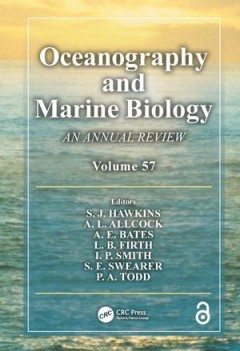
Rhythms now: Henri Lefebvre’s Rhythmanalysis Revisited
Rhythms abound today, in a time where all manner of rhythms intersect and amplify each other. Rhythmanalysis enables us to discuss lived experience, both in terms of the constraints of contemporary society, but also the affordances (social, technological, cultural) that we all have access to, in different ways. By focusing on rhythms, we recognize how multiple, different forms inform both our…
- Edition
- -
- ISBN/ISSN
- 9788772100027
- Collation
- -
- Series Title
- -
- Call Number
- 780
 Computer Science, Information & General Works
Computer Science, Information & General Works  Philosophy & Psychology
Philosophy & Psychology  Religion
Religion  Social Sciences
Social Sciences  Language
Language  Pure Science
Pure Science  Applied Sciences
Applied Sciences  Art & Recreation
Art & Recreation  Literature
Literature  History & Geography
History & Geography